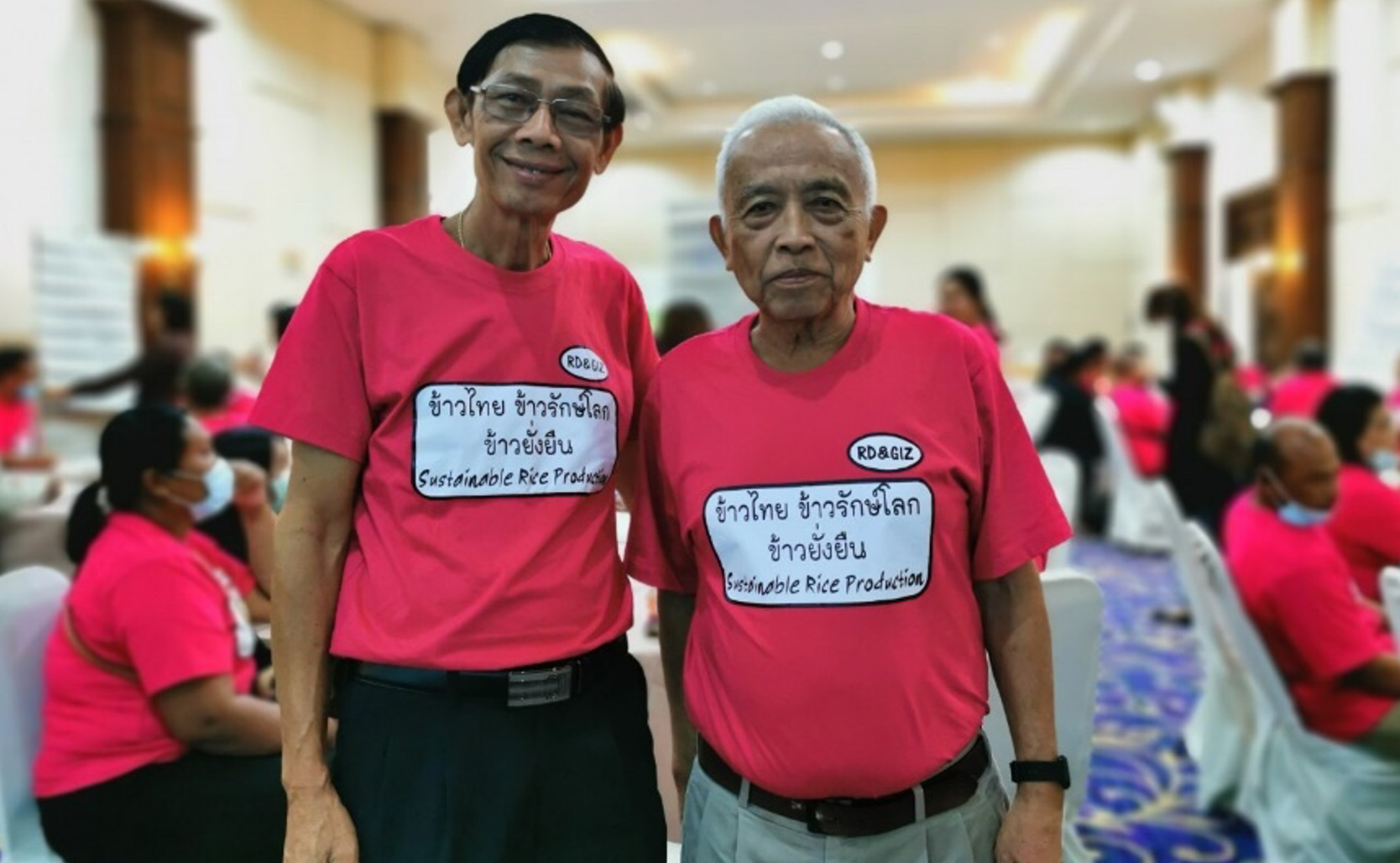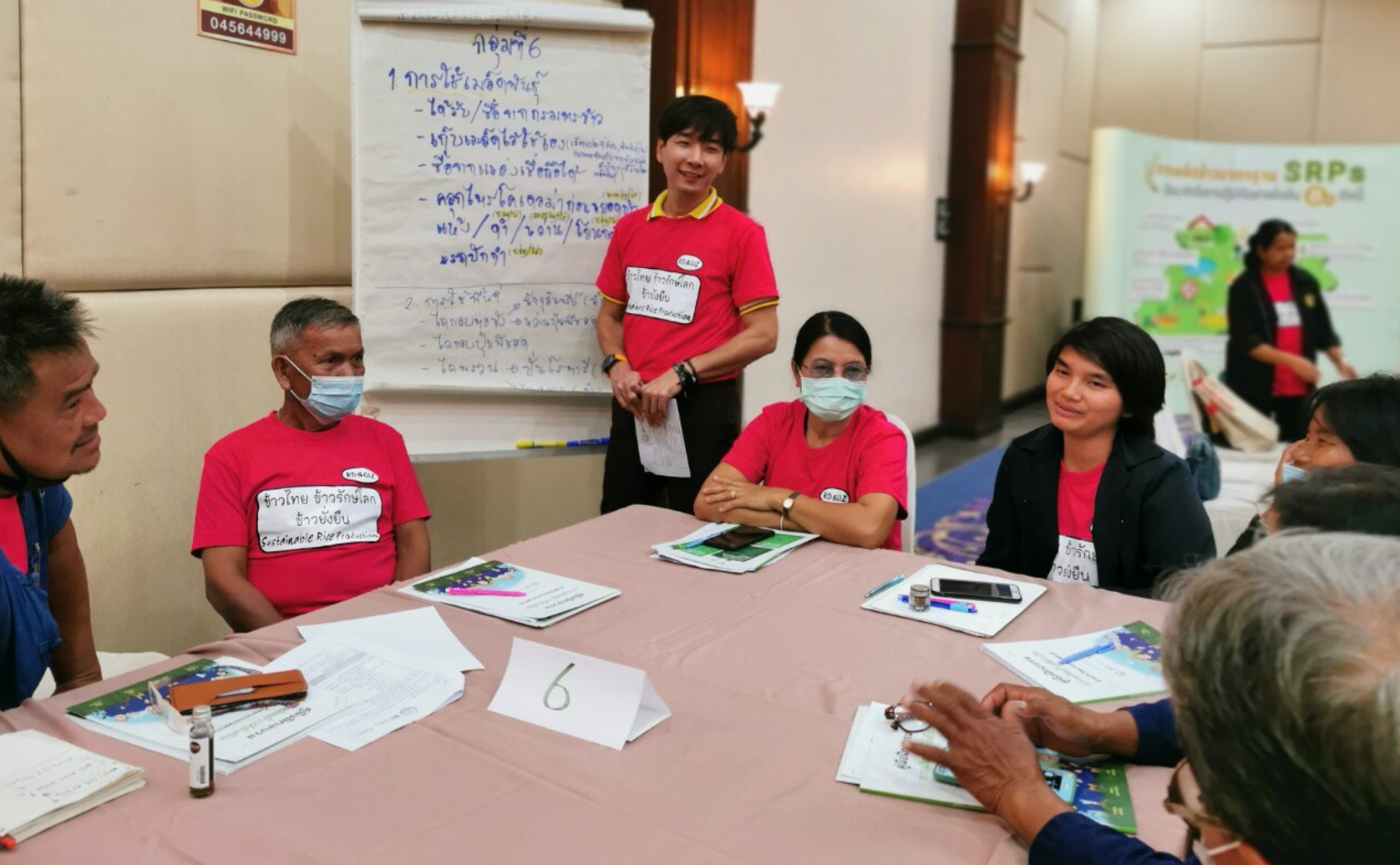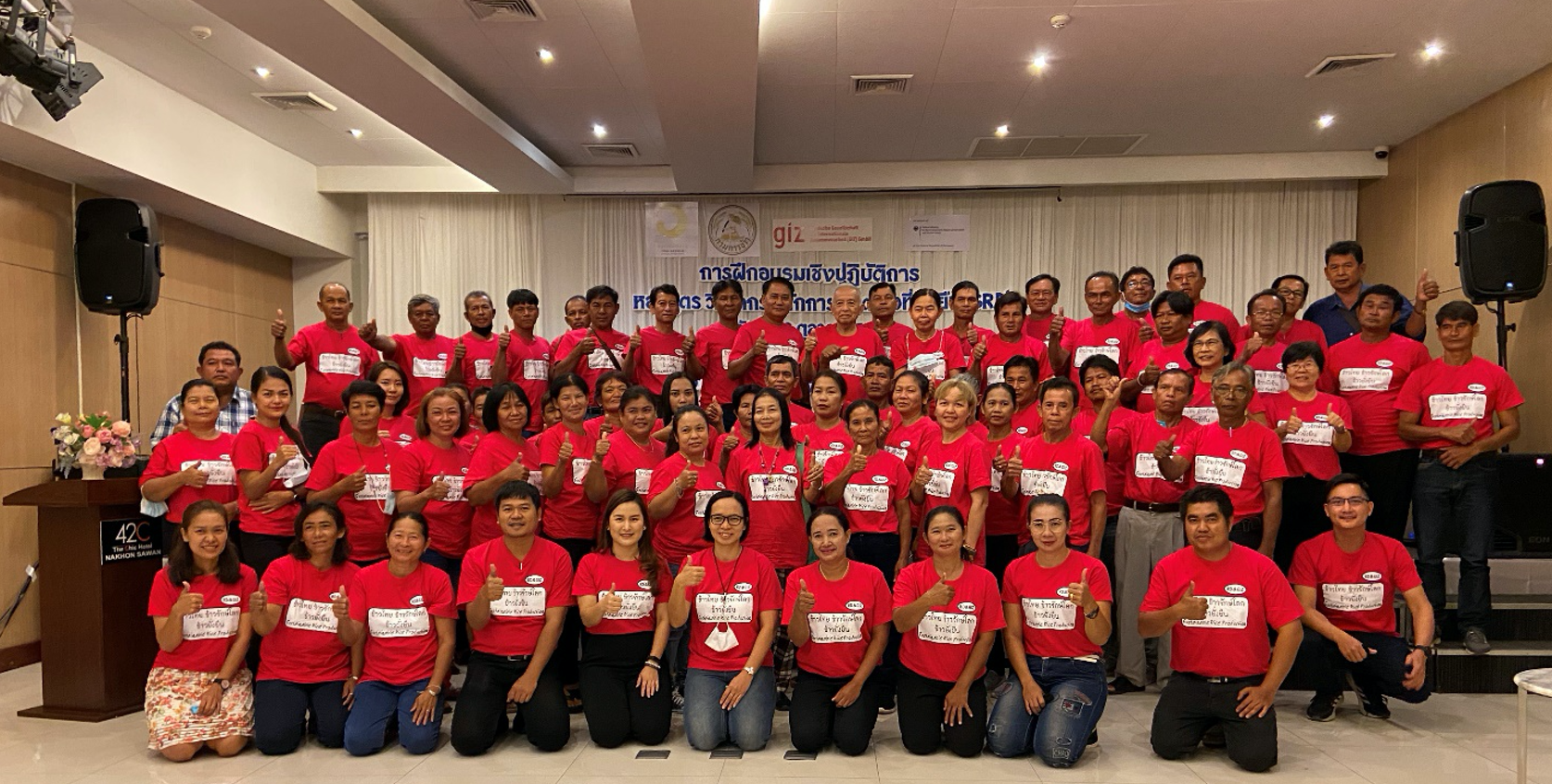One Important Step to Implement Sustainable Rice Production in Thailand
Writers: Chotika Thamsuwan and Patcharin Sae-heng
Thailand has been the world’s leading rice exporter for many years. An important task for the country is to become one of leading sustainable rice producers. The Rice Department and the Deutsche Gesellschaft für Internationale Zusammenarbeit (GIZ) GmbH are gearing up to promote sustainable rice production in the Central Plain and the Northeast.

The origin of sustainable rice production in Thailand can be traced back to the Better Rice Initiative Asia (BRIA I) project which was implemented Ubon Ratchathani from 2013 to 2017 by GIZ and its partners from both public and private sectors. With the motto “Better Rice, Better Life”, the project aimed to promote sustainable rice production and at the same time, raise farmers’ income, enhance value chains and improve farmers’ capacity.
Better Rice Initiative Asia (BRIA) carries on to phase II in Ubon Ratchathani and Surin provinces, Northeastern Thailand and successfully became the world’s first fully certified programme which produced sustainable rice with the premium Thai Hom mali Paddy Rice certified under the Sustainable Rice Platform (SRP) Standard.
Sustainable rice production is important for Thailand’s rice sector in various aspects. Demand for rice in Asia is increasing due to the population growth. Thai rice sector is facing with the problems of shrinking cropping areas, shortage of agricultural labor as well as an aging population in rural areas. Moreover, there are emergent requirements and regulations on quality, safety, sustainability and traceability of production systems due to consumers’ increasing concerns about origin and quality of rice.
In environmental aspects, the rice sector is facing with uncertainty and risks from climate change as well as challenges to mitigate greenhouse gas (GHG) emission from rice cultivation. In the central plain of Thailand, rice production is intensive because it is an irrigated area and therefore, it is possible for farmers to also grow off-season rice and the environmental impacts are more severe than other regions.
The SRP Standard provides potential solutions to challenges facing the rice sector in many dimensions. Farmers obtain more incomes and have higher rice productivity. The community is fulfilled with better livelihood of farmers due to their higher incomes and higher social responsibilities. The global environmental issue, climate change can be alleviated by sustainable rice production, due to higher capacity of farmers to adapt to climate change and mitigate GHG emission from rice farming.
The rice-related projects in the cooperation between GIZ and Thai Rice Department, namely Thai Rice NAMA, Market Oriented Smallholder Value Chains (MSVC) Thailand or BRIA II, Thai-German Climate Programme – Agriculture (TGCP-Agriculture) and Sustainable Aromatic Rice Initiative (SARI) raise awareness on sustainable rice production for local farmers in six provinces (Chai Natt, Ayutthaya, Pathum Thani, Suphan Buri, Angthong, Sing Buri) in the central plain and three provinces (Ubon Ratchathani, Surin and Roi Et) in the northeast

In the provincial and district levels, agricultural extension officers and lead farmers are trained on sustainable rice production to become “Smart Officers” and “Smart Farmers”, respectively. They are model farmers as well as trainers who transfer knowledge about sustainable rice cultivation to local farmers in the community and are the main task force for sustainability of Thai rice production, which has important roles in ensuring food security of the country and alleviating environmental impacts, such as climate change.
Many success stories from farmers’ implementation of sustainable rice production are shared to local farmers. Mr. Boonyarit Homchan, a smart farmer from Chainat province, shared his experience in implementing sustainable rice production that after adopting the low-emission techniques, namely low-emission rice farming techniques, namely alternate wetting and drying (AWD), laser land-levelling (LLL), site-specific nutrient management (SSNM) and straw/stubble management (SSM), he can get higher benefits because the production cost is reduced and at the same time, productivity increases.

At the end of 2020, trainings for trainers on sustainable rice production were held in Nakhon Sawan and Sisaket provinces which are outside the project areas in order to out scale the implementation of sustainable rice production. Participating extension officers and farmers in the two provinces gained understanding on the SRP Standard on Sustainable Rice Cultivation and were confident to apply the techniques with their farms as well as transfer knowledge to others in the community.
Highlights
- The Rice Department and the Deutsche Gesellschaft für Internationale Zusammenarbeit (GIZ) GmbH are gearing up to promote sustainable rice production in the Central Plain and the Northeast.
- This trainings for trainers on sustainable rice production was recently held in Nakhon Sawan and Sisaket provinces which are outside the project areas in order to out scale the implementation of sustainable rice production.
- Sustainable rice production is important for Thailand’s rice sector

